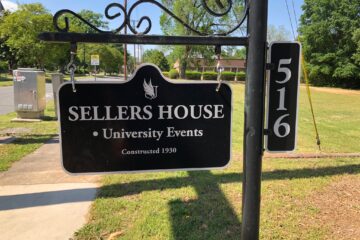The letter sent to the student body by Chairman Glenn McCall was littered with half-truths. Below, we break down some of the claims made in this letter.
“It is the Board’s duty to do what we believe to be in the university’s best interest. We are non-paid volunteers whose vested interest in our role is largely based on our love and respect for Winthrop.”
Article I of the Bylaws for the Winthrop University Board of Trustees states:
“The authority and responsibility for the governance of Winthrop University is vested in a Board incorporated under the legal name and style of “The Trustees of Winthrop University” in accordance with the statutes of the State of South Carolina pertaining thereto specifically, but not limited to, Chapter 125 of Title 59 of the 1976 Code of Laws of South Carolina as amended.”
Title 59 of the South Carolina Code of Laws concerns education. Chapter 125 is specific to Winthrop University. Section 59-125-40 details the compensation of trustees.
“Each member of the board shall receive as compensation for services and attendance on the meetings of the board his actual expenses which shall be paid out of the funds of the institution.”
Even if they are not being compensated with a paycheck, the board is benefitting from their roles.
“Some comments have been that the process for determining interim leadership of Winthrop was rushed. That is true as Dr. Mahony’s resignation came roughly 12 weeks in advance of his departure for the SIU system….We are not required to do a typical 6-9 month search process, and unfortunately, we could not have accomplished that due to the timing of the resignation.”
Mahony’s contract was not renewed for another year as of May 2019. His latest contract that was signed on May 4, 2019 got rid of the rolling renewal that was included in each contract prior. Mahony knew he wouldn’t be returning. The Board knew that he wouldn’t be returning. The search for an interim president could have and should have started earlier in the year.
“In regards to input representing the interests of students, there were several opportunities as senior leadership, including the VP of Student Affairs, twice met with Board representatives to give input. Additionally, in December we met with various faculty and staff, including a Student Affairs representative, to learn what was needed and desired in an interim leader, and we took recommendations and nominations and talked to a good number of people about the interim role.”
While these individuals may have the interests of the students in mind and were serving as a mouthpiece for the sudents, students themselves should have been involved in these conversations. In fact, student representative Imani Belton should have been involved. She was elected by the students and—as a student herself—would be able to accurately speak for the student body.
“Additionally, 10 students and 48 faculty/staff were invited to meet Dr. Hynd before the Board vote, when he was the Board’s preferred candidate, and we received only positive comments from those who met with Dr. Hynd.”
10 students are not representative of a student body of over 6,000. How were these students chosen? Were they hand-picked or volunteers?
Hynd was not just announced as the Board’s preferred candidate—he was the only candidate announced. There has been no mention of who else was in the running, other than during Jane LaRoche’s speech in the last board meeting.
“To clarify the student and faculty representatives’ role on our Board, according to our bylaws, the Board “may invite the Chair of Faculty Conference and the designated leader of the officially recognized student representational organization to attend meetings of the board as representatives of their respective organizations to the Board with the right to discuss but without a vote.” Please keep in mind that even as non-voting members, both representatives met one on one with Dr. Hynd in advance and were free to participate in board discussion before the vote. Neither did so.”
There was no opportunity for either of them to cut in and speak. LaRoche took the first opportunity to express her disappointment in the board, and after repeatedly being told to sit down, she did. Only for McCall to move immediately into the vote. No further discussion happened because he swiftly changed the subject.
This letter was a clear attempt to justify the actions of the board when they were finally held accountable for their lack of transparency and communication with the rest of Winthrop University. Moving forward, students, faculty and staff need to be informed of the actions of the board. We acknowledge that finding a new president to follow Mahony is a difficult task, but this process was severely mishandled.




